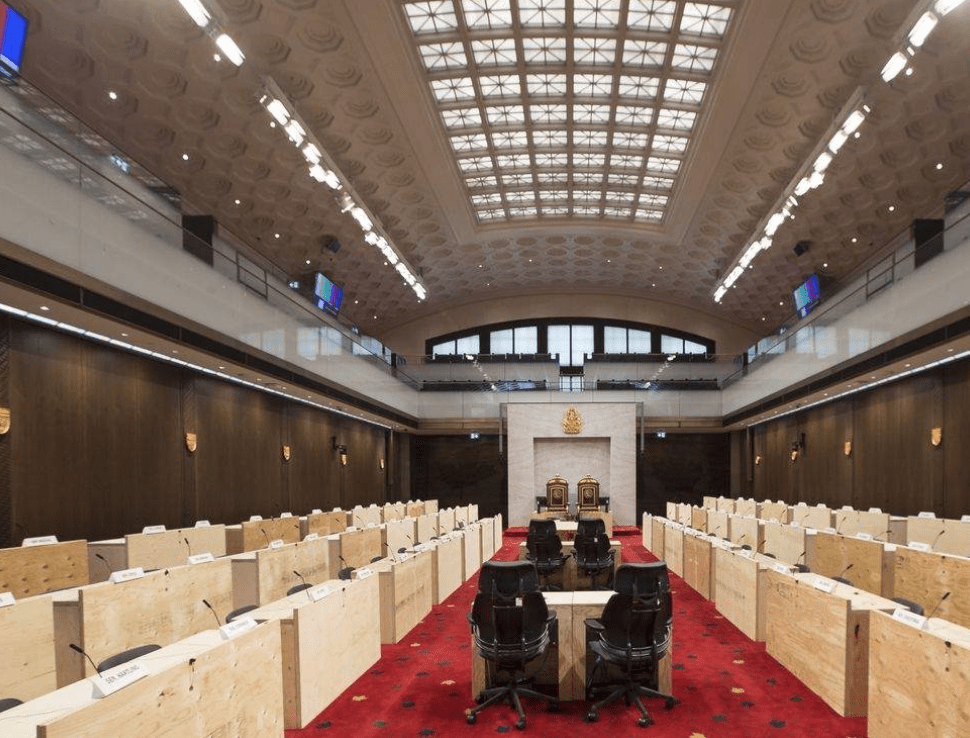As we run out of time in the current Parliament, the Senate continues to remain mired in the Order Paper crisis of its own making. With a lot of government bills still to get through (though they have come to an agreement on timelines for many of them), there has been a certain amount of consternation about a number of private members' bills that will die if they don't pass before the Senate rises for the summer and indeed, for the election call. We've seen a few bouts of performative outrage over this, from Rona Ambrose's media offensive in defence of her (very flawed) bill, to the House of Commons itself issuing a statement that they want Romeo Saganash's bill to implement the United Nations Declaration on the Rights of Indigenous People (UNDRIP) passed but it's entirely for show, and Senators need to remind themselves that sometimes, it's not only okay to let these bills die, but that it's their job to do so.
A few things to remember first that the Senate has to prioritize government business, of which they still have a lot to get through. This is especially true in Senate committees, which is where some of the current consternation is coming from, because these bills are languishing on the committee agendas. While the Leader of the Government in the Senate err, "government representative," Senator Peter Harder, does have the ability to invoke time allocation on government bills (on one stage of one bill per motion), he has no ability to do so for private members' business which is as it should be. When they were in power, the Conservatives were contemplating rule changes to the Senate that would give them the ability to also time allocate private members' business, but this was vigorously opposed by the Liberals in the Senate, because they also could see that the Conservatives were using private members' bills to get through certain agenda items under the guise of it being private members' business. Two such bills had to do with restricting unions (which the Liberals quickly repealed once in power), but they were done with the full blessing of the Conservative leadership. Giving governments the power to bully these bills through is bad for democracy.
The other thing to remember is that a lot of private members' bills are actually really bad, but they get passed with shockingly little scrutiny because of cheap sentiment and it's a problem that keeps happening over and over again. Backbench MPs have particular policy hobbyhorses that they want to get traction on, or they want to look like they're acting on an issue that is complex or difficult, and so they draft these bills in order to look like they're acting. Sometimes they are useless like bills demanding national strategies because it's an area of provincial jurisdiction and sometimes they're actually harmful, but get passed anyway because it looks like they're doing something Michael Chong's Reform Act is a very good example of this. The bill was democratic poison, and yet everyone mouthed support for it at the time because it looked like they were "fixing democracy" (even though none of them planned to implement the changes, nor did they at the start of the current parliament).
We have examples of both of these in the current batch of private members bills that there are demands to pass currently. For example, Saganash's Bill C-262 on implementing UNDRIP, has been pointed out by legal experts as being drafted so poorly that it would not actually implement anything, and even Senator Murray Sinclair has stated that it simply calls on the government to do an analysis of existing legislation that it conforms to the principles of UNDRIP which is probably why the government ended up supporting it after they initially resisted. It's a bill that trades on sentiment without much effect, but you wouldn't know that from the rhetoric that is being used around it, and the demands that it be passed (never mind that there is no mechanism by which it could be expedited).
Ambrose's Bill C-337 on demanding that potential judges get mandatory sexual assault training before they be appointed to the bench is another bill that is hugely problematic, but it too trades on sentiment rather than fact. Ambrose will point out that the bill passed the House of Commons unanimously, but it also didn't get proper committee scrutiny it was sent to the Status of Women committee rather than the Justice committee because they felt it would go faster, and thus wasn't actually given proper vetting particularly because it was given overly sympathetic treatment (who would be against sexual assault training?) and not enough scrutiny as to the issues it presents to conflicts of interest, judicial independence, or even simple logistics of ensuring that rural lawyers can get access to the same training before applying to the bench as urban ones do. And lo, when it reached the Senate and these issues were raised, Ambrose has steadfastly ignored the concerns and insists that it would need a mere hour at committee to pass, even though the problems being raised are very fundamental and even constitutional, if you think of the judicial independence aspects of it. And as was reported in the Hill Times this week, there are senators agitating to get the full chamber to pass a motion to demand that the Legal and Constitutional Affairs committee put this ahead of government bills to pass it because they mistakenly think it will only take an hour to rubber stamp. This should be concerning.
Senators need to remember that their job is sober second thought, which means staring down some of the sentimentality that saw these bills pass with little or no scrutiny, and if that means letting them die on the Order Paper, then so be it. If the government felt these bills were important, they can reintroduce them as government bills in the next parliament, where they can be subjected to proper scrutiny in proper committees. Just because they passed the Commons is not reason enough for them to pass unchallenged. And when you have bills as badly flawed as C-337, letting them die should be a mercy, even if Rona Ambrose is mean to you in the media as a result. That's why senators have institutional independence so that tough calls can be made.
Photo Credit: Ottawa Citizen











